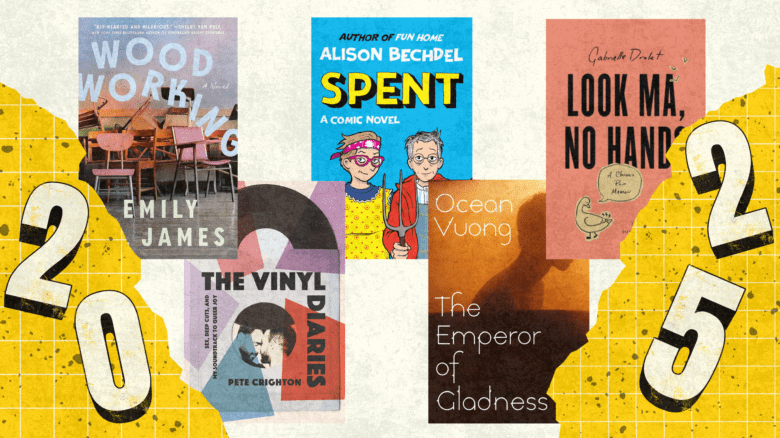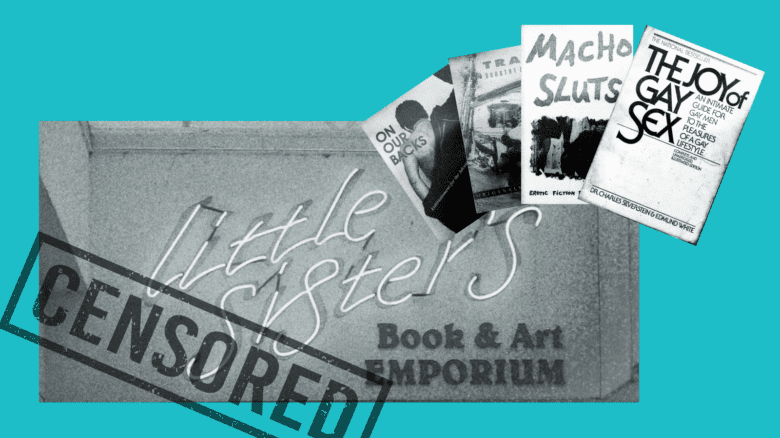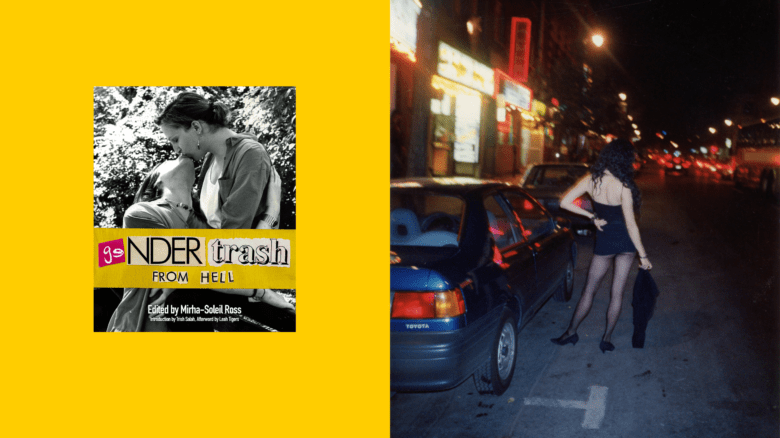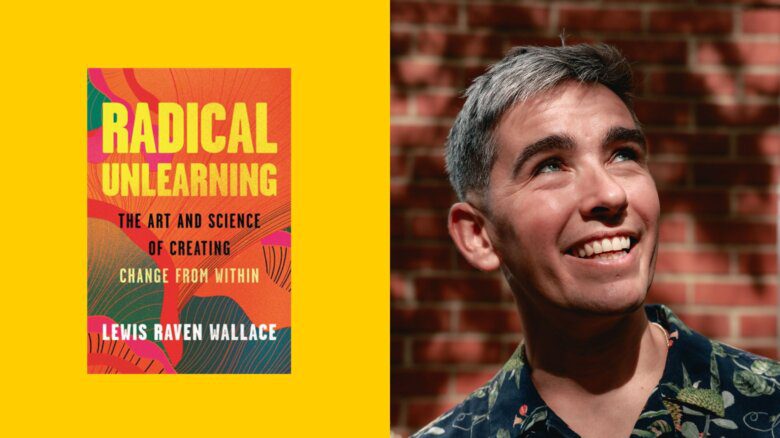The culmination of my sex education training was a review of the top ten questions asked on the San Francisco Sex Information’s hotline. I adore SFSI—and their comprehensive training—for their mission of providing free, confidential, accurate and nonjudgmental information about sex. While our training encompassed medical and social aspects of sex, what struck me the most in reflecting on callers’ needs was the overwhelming desire to belong. For example: “I want to try anal sex, but I’m worried my partner will think I’m weird.” Or: “We’ve recently had a baby, and we haven’t had sex since then. Are we ever going to get our sex life back?” So many questions, when you stripped away the technical specifics, were about reassurance: Am I okay? Is this desire normal? Do I still belong?
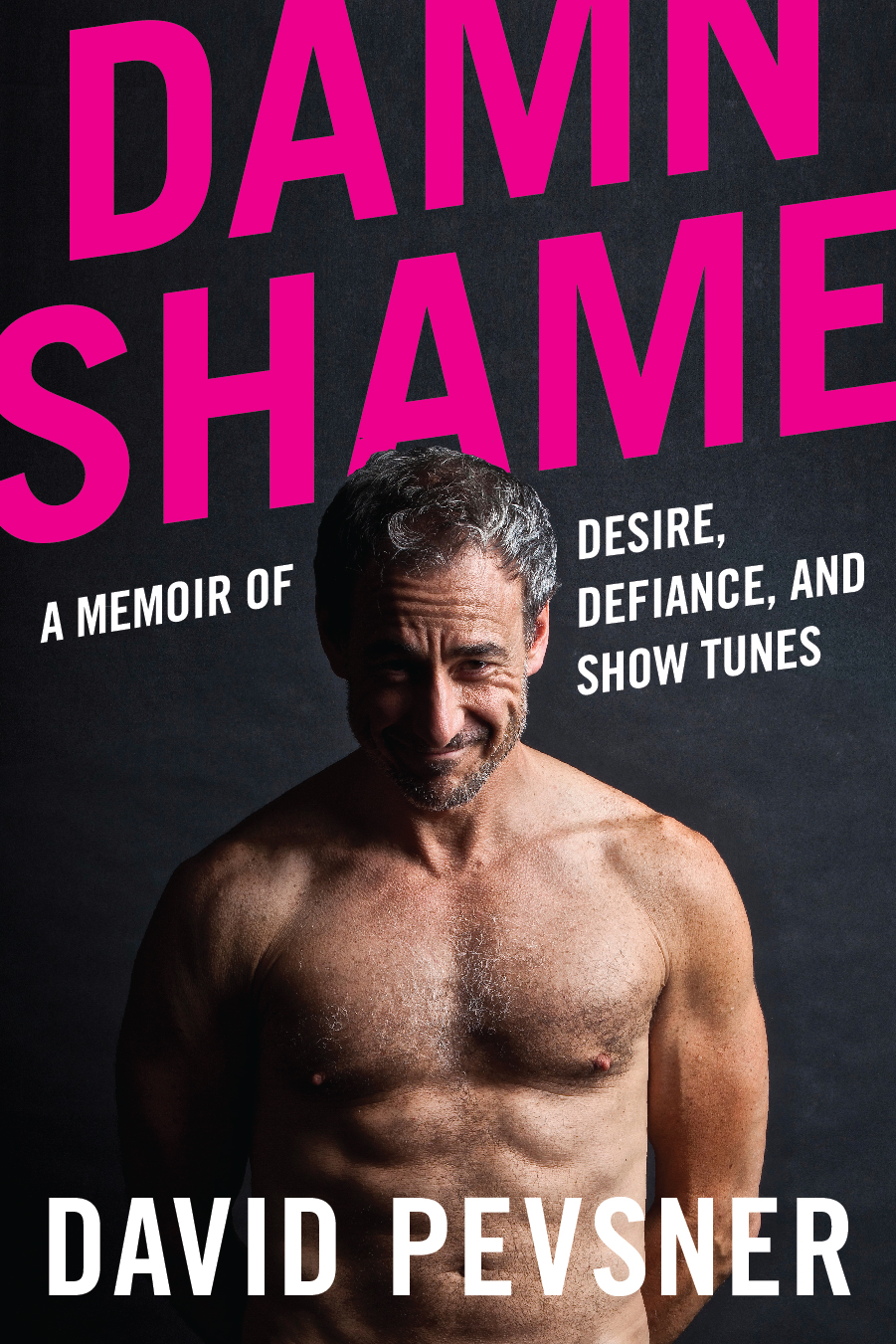
So I was glad to read David Pevsner’s Damn Shame: A Memoir of Desire, Defiance, and Show Tunes. While it’s a book about wanting to belong, the specific obstacles he faces change throughout the story: Pevsner is a skinny Jewish kid from Illinois, a gay man in a homophobic university, an escort in a relationship full of sex worker stigma, a nude model in a world where acting agents fire you for doing erotic work, a sixty-something man ignored by young A-list gays. But the ache remains the same. The fundamental message of the book is that we all deserve love, care and yes, the opportunity to explore our eroticism.
Pevsner is an actor, writer, erotic model and a personal organizer living in the Los Feliz area of Los Angeles. He’s best known for the films Scrooge & Marley and Joshua Tree, 1951: A Portrait of James Dean. He’s also had TV roles on Modern Family, Grey’s Anatomy, Law & Order, NCIS, Desperate Housewives and other shows. Perhaps the most fun of all, he wrote the musical Musical Comedy Whore! and songs for the long-running show Naked Boys Singing!
Xtra chatted with Pevsner about how he turned a musical into a book, the changing nature of sex work over the decades and how to combat ageism in gay circles.
Tell me the origin story of your memoir, Damn Shame.
I wrote two, one-man musicals and a screenplay. A friend in Chicago read the musical and asked if I’d consider writing a book. I was challenged and I was scared—and that’s the perfect reason to do something that you don’t think you can do.
It took getting up every morning at 6:30, throwing on some pants and going to Starbucks or the Coffee Bean every day for months and months. I wouldn’t have kept with it if I didn’t feel so connected to what I was writing down. I felt some of these stories melt out of me.
My editor, Scott Sellers at Random House Canada, guided me through so much of the process after I brought him my raw manuscript.
The subtitle is A Memoir of Desire, Defiance, and Show Tunes. It’s about becoming yourself—your erotic self, yes, and also your whole self as a person—in large part through erotic exploration.
It may seem niche, but it’s relatable for anybody who’s ever felt body shame or ageism or fear of sex or being judged. I thank people for looking past the sensationalism to the heart beating underneath it. There’s something else attached to every sexual experience I’ve had: something that hurts my self-esteem, something that makes me feel proud, something that just feels really good.
Somebody might ask, “He’s talking about wearing leather for the first time. Who cares?” Well, there’s so much attached to why I decided to wear leather, what it felt like and what it would feel like for you, if you explored your sexual fantasies.
And it’s connected to how we were raised. This stuff is deeply rooted.
It is deeply rooted. I don’t know how many people realize at the age of six that they are gay, while they’re still kissing pillows. All I knew was I felt very different, and scared about what I was feeling.
Do you have a favourite section of the book?
The story about Kalani, the model I met. I wrote it in one sitting, and it gave me such warmth and regret and pain. I started to cry. I was caught by surprise writing that piece. It’s not funny—it’s about my own self-esteem, how this beautiful man made me feel beautiful, briefly.
And then the chapter called Rocky, where I’m really defensive about being gay and having erotic work out in the world. It’s one point in the book where I felt I had to rant—I fought for that chapter, to talk about all the people who want to hold us back.
The story thread that stuck with me the most was your relationship with Reid, who was so terrified and jealous being with you, and had problems with your being a sex worker, even after you’d quit.
Being an escort helped me learn about men in a whole new way. Before that, I would only sleep with guys who were built. When you’re an escort, you can’t do that. I learned how to look at men differently and find other ways to be attracted to them, because you had to be there, body and soul. It taught me a lot about men and changed what my type was.
I was opening up, and Reid and I had this strong bond from the beginning. And then it became a year and a half of tumult. I was working as an escort when I met him, but I quit for him, and he never could let it go. Yeah, I escorted for the money, but I was also a caretaker, a role player sensitive to what my clients needed. I was a boyfriend, a lover, a husband. It was a great way to make more money than I was making in the theatre. And he just said, “You’re not an escort, you’re a whore.”
He was just the wrong guy for me. That experience taught me about relationships, what I want and what I don’t want.
And now you’re doing erotic work again, this time online.
I have my OnlyFans page, where I do a lot of erotic videos and photo shoots and where I post writing. I’m bringing the same artistry I bring to my acting to this erotic stuff. I try to be creative and do things a little differently and within the limitations of COVID-19 restrictions.
I never thought of myself as a sex worker or a porn star—just an erotic artist. At first I tried to keep my videos artsy. Then I was like, “You know what? Shove that dildo up your ass and film it, and see how it makes you feel.” I still try to put another layer on it to make it more funny, interesting, fun, sexy.
I’ve had this in me to express myself sexually my whole life, but I was too scared. Now it’s like, “I don’t care if I’m 63 years old and doing it, I’m doing it.”
And it’s helped as a means of making money, too. When COVID-19 started and all the jobs went away, I started charging a subscription for erotic videos on OnlyFans, and that’s what got me through.
Ageism is a thread through the book, especially in light of your work on OnlyFans.
Now I realize how ageist I was when I was younger. Putting myself out there as an older guy getting naked on the internet, I get so much good feedback from people saying, “Thank you, I feel more inspired, I feel better about myself.” And then I get the ones who are like, “Ugh, that’s disgusting, and you’re gross.”
The very first thing you read in the book is a kid at a bar who said, “Ugh, I don’t want to get older.”
Look, if you’re young and you only want to sleep with pretty boys, I get it, I went through it. That’s where you are right now. You may never change. I have total respect for that. But don’t be mean to me.
It’s the unnecessary meanness toward people who aren’t your type for whatever reason.
Right. I used to go to a very gay gym. There were guys I saw there every day, and I’d make eye contact and smile and say hi. And they’d look at me as if I was just trying to put my dick in their ass, like, “Ew.” It’s like, I’m just saying hello, guy, I’m not trying to fuck you.
You can also say, “No, thank you” without being nasty about it.
And you may be the prettiest thing that everybody wants when you’re young, but that’s not going to last. I went through that. Back then I was very limited in terms of what I liked, who I’d sleep with, who I even talked to. But having gone through everything I’ve gone through, I like to think that I’ve learned, and that I’ve progressed. When people ask, “What’s your type?” I used to be able to say, “Brian Kelly from Flipper.” Now? I’ll know it when I see it. What is the guy like? Is he funny? Is he smart? Is he cute? It’s beyond just the one element that used to make me attracted to somebody. You know what’s really sexy in somebody? Confidence.
In the book you see all the things in my life that undermined my confidence. Not only as a little gay boy growing up to be a gay man, but also as a performer and an artist, like [people at] Carnegie Mellon University saying, “If you don’t butch it up, you’re never going to work.”
It was homophobia, but we didn’t realize it at the time. All I knew is it made me feel bad. Getting beaten up at recess and being called a faggot. All of that stuff keeps coming at you, and it’s hard to have confidence in doing anything.
Even when I started writing little plays and performing them in third, fourth and fifth grade, I loved it—until people started beating me up on the playground. I didn’t feel safe. That shut me up until high school.
And here you are now, modeling and speaking about erotic work and sexuality.
Part of what I want people to do is to talk about sexuality and not be so coy or so precious about it.
When people say, “I can’t believe you posed for those photos. How does that feel? Your mother must be really proud.” I’m like, “My mother doesn’t need to see them. She’s no longer with us and I don’t know if she ever did.” But that doesn’t stop me from wanting to express myself in this way. Why do you have such a problem with it? What is wrong with that? You tell me. I find joy in it. I’m doing something I’ve always wanted to do.
I didn’t start posting photos until 2013, when I was 50-something. I just didn’t have the guts to do it before. I just kept saying, “My career, my career, my career.” Then I started to see a couple of my photos showing up, and I was like, “No, I own this, I like this.” Then I thought: I’m going to do it myself. It feels like I’m holding them back out of shame, and I don’t want to feel that way. And I think I can change people’s minds about stuff.
A lot of people start to feel irrelevant after 40, and they have 40 years of life left. It’s not a very healthy point of view. You can change that. It takes work, and your body does get harder to maintain as you get older. But you also get more wisdom. Confidence does come a little better as you get older because you know what you’re doing, and that is attractive, too.
Skill is attractive. Experience is attractive. Having been around, gone through some stuff and gotten wiser on the other side is attractive.
To be able to really listen to people because you’ve had the experience is a very attractive thing, too.
It hurts my heart when I hear guys my age go, “Oh, nothing’s ever going to happen for me.” Somebody sent me a note the other day saying, “I can’t wait to read your book, it’s great that you’re so open. For me, I don’t feel desirable, I don’t feel like anybody wants me.” I just said, “I’m concerned when you talk about yourself that way, because I don’t believe for a second that you’re not desirable. But I’m curious to hear, after you read the book, if what I wrote resonates with you. I’m not a shrink, so I’m not going to pretend to be one. All I know is from my experience, here’s what I did, and here’s how it helped me.”
I didn’t go to school for gay studies or psychology. I wrote a book about how it all made me feel, and how I’ve sorted it out for myself.
What do you hope for?
Let’s start the conversation about sex, body shame and nudity, and not take it at face value. Let’s find out why something makes you uncomfortable, why you love something else so much, why something turns you on or doesn’t turn you on. Let’s talk about it.
There are a lot of podcasters and writers, like you, who are really putting it out there, but your basic guy who feels frustrated inside may not be reading the articles. I want people to be able to say to their partners, “I’m really struggling with this.” I want all of us to have safe and comfortable people that we love, where we can talk about our real life, our authentic life, and not keep it a secret.
Any last thoughts for readers?
It was a total pleasure working on the book. Hard as hell, but a total pleasure. I would recommend sitting down and trying to write your stories to anybody.
This interview has been edited for length and clarity.
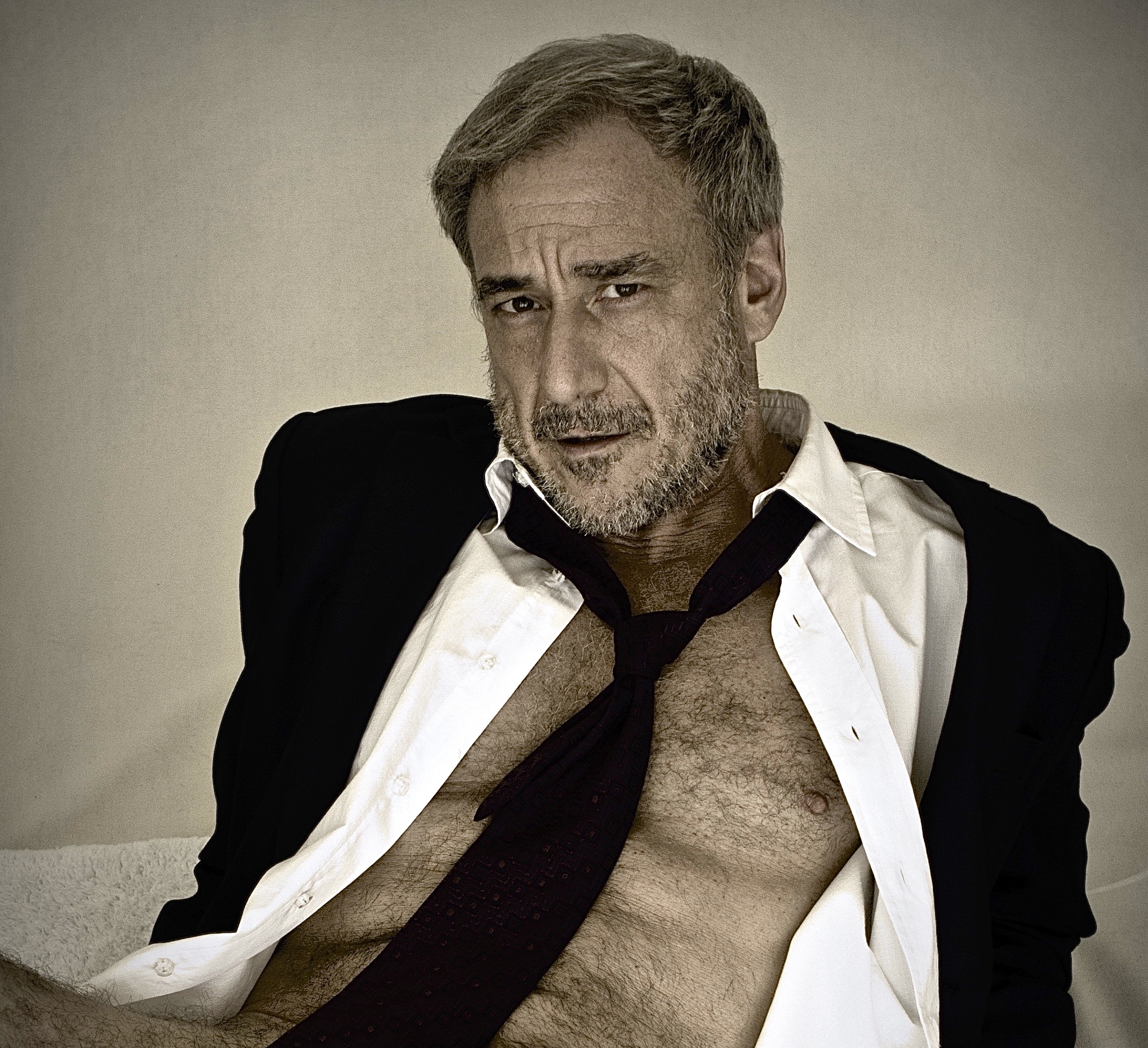

 Why you can trust Xtra
Why you can trust Xtra